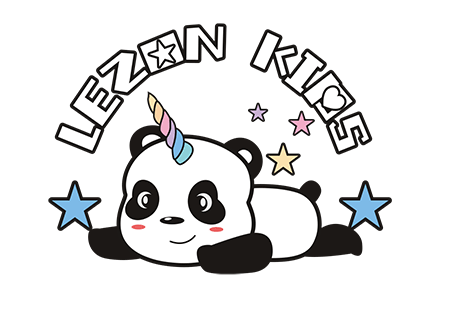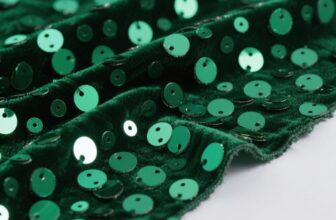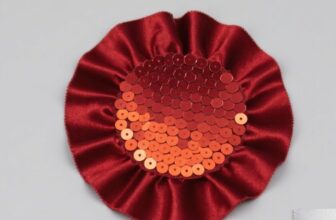Breakthrough in small-order children’s clothing:
From inventory dilemma to flexible production
When emerging children’s clothing brands achieve stable monthly sales of 300-500 pieces, what should be a golden period for accelerated growth, they often fall into a fatal trap: the high barriers to entry of the traditional supply chain prevent 86% of brands from surviving. The 2023 ” Children’s Wear Industry White Paper” reveals that over 80% of startup children’s clothing brands fail due to inventory pressure in the first quarter. This isn’t a problem of operational capabilities, but rather a mismatch between production models and market demand. As consumers demand personalization and market testing requires rapid iteration, the rigid mass production system has become a stifling barrier to innovation.
Inventory dilemma: the threshold of life and death for small brands
The unique characteristics of the children’s clothing industry make inventory management more challenging than in other apparel categories. Children’s growth rates dictate that clothing has an extremely short lifecycle, and demand for each size segment varies greatly, yet traditional factory partnerships often overlook this.
The rigid threshold of traditional factories
The terms of cooperation with traditional factories are like an unsolvable equation: the minimum order quantity for a single item must be at least 500 pieces, and production is mandatory across all sizes. For example, for a children’s jacket for ages 3-8, the factory might mechanically require 100 pieces each in sizes S (3-4 years), M (5-6 years), and L (7-8 years), disregarding market demand. Even more daunting for small brands is the sample production fee, which can be as high as 800 yuan per piece, not to mention the complex production process.
Chain crises caused by high thresholds
This model directly leads to three fatal consequences: inventory accumulation occupies a large amount of funds, and more than 60% of the start-up capital of many brands is locked up; the code waste rate is alarming, with an industry average of 35%, which means that 35 out of every 100 pieces may be unsaleable; the cost of trial and error is high, and the cost of testing a design exceeds 10,000 yuan, which makes small brands dare not try to innovate.
The founder of an emerging brand specializing in parent-child clothing revealed that of their first batch of 500 dinosaur-patterned sweatshirts, the smallest and largest sizes had unsold rates of 62% and 58%, respectively. They ultimately sold their stock at a 70% discount, leaving a backlog of nearly 30,000 yuan, impacting their next quarter’s development. This is a common dilemma faced by all small-size children’s clothing brands.
LEZONKIDS solution: flexible production system for small orders
Facing traditional supply chain barriers, LEZONKIDS has built a small-order flexible production system that has achieved three major breakthroughs, redefining the production standards for small-order children’s clothing.
Comparison of core indicators between traditional factories and LEZONKIDS
| Key Metrics | Traditional factories | LEZONKIDS |
| Minimum Order Quantity | 300-500 pieces/item | 100 items/item (save 60% immediately) |
| Code number rules | Same style, same size | Single style mixed code |
| Proofing cost | 300-1500 yuan/piece | 0 yuan (including 2 revisions) |
| Shipping cycle | 45 days+ | 14-30 days |
The minimum order quantity threshold has been significantly reduced

The minimum order quantity has been reduced from the industry-standard 300-500 pieces per style to 100 pieces per style, saving the brand 60% of its initial investment. The original investment of 500 pieces can now be spread across five styles for testing, reducing the risk of a single design failing.
Flexible mixed-code production mode
Sizing rules break the mandatory “same style, same size” requirement, allowing brands to mix sizes based on the age distribution of their target customer base. A children’s clothing brand based on an original dinosaur IP has proven this approach effective: for every 100 orders, 30 sizes S, 50 sizes M, and 20 sizes L were allocated, effectively matching the customer base. The result was a 92% sell-out rate on the first day, with inventory completely depleted.
Innovation in proofing and shipping cycles
Key to innovation in sample costing is LEZONKIDS, which offers free samples and up to two revisions, reducing the traditional cost of 300-1500 yuan per piece to zero. This shortens delivery time to 14-30 days, significantly shorter than the industry average of over 45 days, allowing brands to quickly respond to market trends and deliver popular designs promptly.
The core of this flexible production system is to shift the traditional mindset of “large-scale standardized production” to a “small-scale, precision-driven” approach. Through digital management and flexible production line configuration, small orders can enjoy efficient and flexible production services, fundamentally addressing the supply chain pain points of small brands.
0 Cost Trial and Error: Guarantee from Drawing to Sample
For emerging brands that lack design experience, the transformation from creativity to finished product is full of uncertainty. LEZONKIDS’s free proofing process provides full protection.
Efficient free proofing process
The proofing process is streamlined and efficient: upload a design or inspiration drawing and receive three renderings within 72 hours. Physical samples are delivered within seven days of confirmation. If adjustments are needed, receive up to two free revisions, and production commences upon satisfaction. This “see results first, then commit to production” model eliminates design implementation risks.
The founder of a children’s clothing brand made of eco-friendly fabrics shared: “The original design draft had issues with color matching, but the LEZONKIDS designer suggested revisions during the rendering stage to avoid waste. A second revision adjusted the neckline, and the final sample exceeded expectations.”
Small orders without compromising quality
Small-scale production does not compromise quality standards. Our process control ensures patch positioning errors of ≤0.3mm, significantly exceeding the industry average of 1.5mm, ensuring flawless patterns. Sequins and beads are machine-washed 50 times to ensure they remain resistant to shedding, reassuring parents.
Transparency and traceability of materials are a key feature. Each batch of goods is accompanied by a complete fabric composition test report, complying with the GB18401 standard. Accessories are certified with LFGB food-grade dyes, ensuring they are safe for contact with children’s skin. This transparent approach allows the brand to demonstrate quality to consumers and build trust.
The head of the technical team explained: “We don’t believe that small orders should have lowered standards. Emerging brands need to build their reputation through high quality. Our quality control system is the same as that used for large brands, but we have made small orders more affordable by optimizing our processes.”
30-day ultra-fast delivery: Secrets of the small order dedicated line revealed
The ability to quickly respond to market demand is particularly crucial in the children’s clothing industry. Children’s preferences fluctuate rapidly, and seasonal demand is evident. The ability to deliver during the sales window can determine a product’s success or failure. LEZONKIDS uses a dedicated small-order production line to shorten its delivery cycle to 30 days, driven by collaborative supply chain optimization.
Production cycle comparison table
| stage | Traditional factories take time | LEZONKIDS Time | Speed-up method |
| Procurement of surface and auxiliary materials | 14-20 days | 7 days | Real-time inventory linkage with 200+ partners |
| cutting machine | 7 days | 5 day | CNC cutting machine 8 hours/1,000 pieces |
| Sewing line | 20days | 10 days | Small order independent assembly line |
| Quality inspection packaging | 5 days | 2 days | Three-step test |
| total | 45-60days | 30-45 days | Efficiency increased by 40% |
Speeding up the procurement of flour and auxiliary materials
Procurement of fabrics and accessories is key to shortening production cycles. Traditional factories take 7-10 days, but LEZONKIDS has established a real-time inventory linkage system with over 200 suppliers, enabling procurement to be completed within 3 days. Thanks to a long-standing inventory sharing system, suppliers reserve inventory of commonly used fabrics to support small orders.
Optimization of cutting and sewing processes
The introduction of CNC cutting machines in the cutting process has reduced the traditional two-day workload to one, allowing a single machine to complete 1,000 pieces in eight hours. The digital cutting system automatically optimizes nesting based on mixed-code orders, reducing waste and being crucial for controlling costs for small orders.
The sewing process features a dedicated assembly line for small orders, completing the workload of a traditional factory in 10 days in just 6 days. This dedicated line is staffed by experienced seamstresses, familiar with the diverse styles and techniques of small orders, and able to quickly switch between solutions. The workshop handles an average of over 20 small-batch orders daily, ensuring high efficiency and quality assurance.
Refined process of quality inspection and packaging
The quality inspection and packaging process utilizes a three-tiered inspection process, completing a traditional three-day process in just two days. The first step examines basic workmanship, the second checks for dimensional deviations, and the third tests appearance and functionality, ensuring that every product meets standards. This refined process prevents quality issues from being overlooked due to small orders.
By optimizing all aspects of the process, LEZONKIDS has reduced the traditional factory production cycle from 45-60 days to 30-45 days, increasing efficiency by 40%. This rapid delivery capability allows small brands to “move forward quickly,” adjusting production plans based on market feedback and avoiding large-scale unsold items.
Your action benefits: Reduce entrepreneurial risk by 75%
The significant reduction in production costs directly translates into survival opportunities for small brands.
Cost Comparison Table
| Cost Items | Traditional factories | LEZONKIDS | Savings |
| Proofing fee | 800 yuan | 0 yuan | 800 yuan |
| Minimum Order Quantity | 500 items | 100 items | 400 pieces less inventory |
| Fabric cost | 30 yuan/piece | 32 yuan/piece | – |
| Total investment | 15,800 yuan | 3,200 yuan | 12,600 yuan |
This cost advantage significantly enhances risk tolerance. Brands can use the same capital to test more styles and, upon identifying promising models, place additional orders, creating a virtuous cycle of “test-validate-amplify.” The founder of a successful children’s clothing brand explained that, instead of investing in a traditional one product, they tested five designs at LEZONKIDS, with one becoming a hit. Total sales tripled compared to a single design, while also minimizing inventory pressure.
To help brands accurately calculate mixed-code production plans, LEZONKIDS has developed a dedicated Mixed-Code Calculator. Simply enter the expected sales ratio for different code segments, and the system automatically generates a minimum order plan, balancing efficiency and risk. This data-driven tool allows small brands to make more informed production decisions and avoid wasteful ordering based on experience.
Scan the QR code now to access the [Mixed Size Calculator] to plan your first product. You can also upload your design and receive free 3D renderings within 72 hours. To get started quickly, click “Generate Your Custom Plan” to receive personalized production recommendations, including optimal minimum order quantity, size allocation, and lead time estimates.
The children’s clothing market isn’t short of creativity, but it’s lacking the environment for small brands to thrive. LEZONKIDS’s flexible, small-order production system redefines the industry’s rules—no need to risk overproduction to meet minimum orders, no need to sacrifice creativity to save costs, and no need to miss opportunities due to waiting for production. Even small orders of 100 pieces receive professional service, allowing every aspiring children’s clothing brand to grow steadily with manageable risk.









